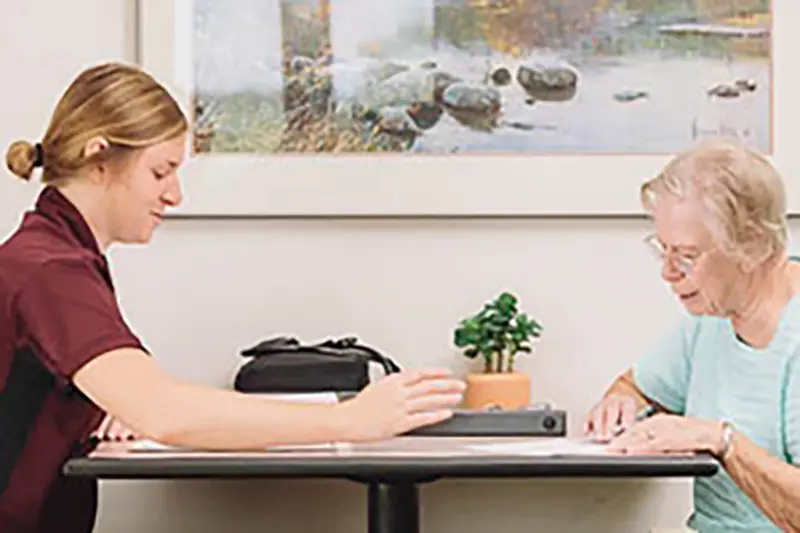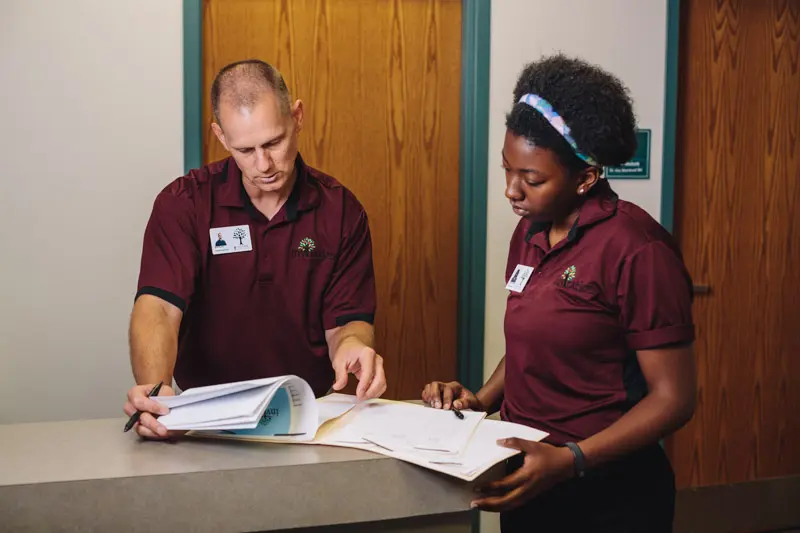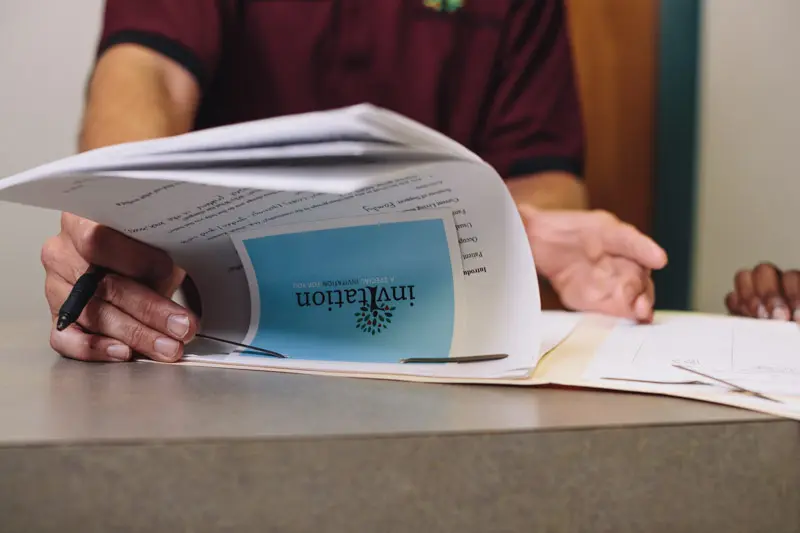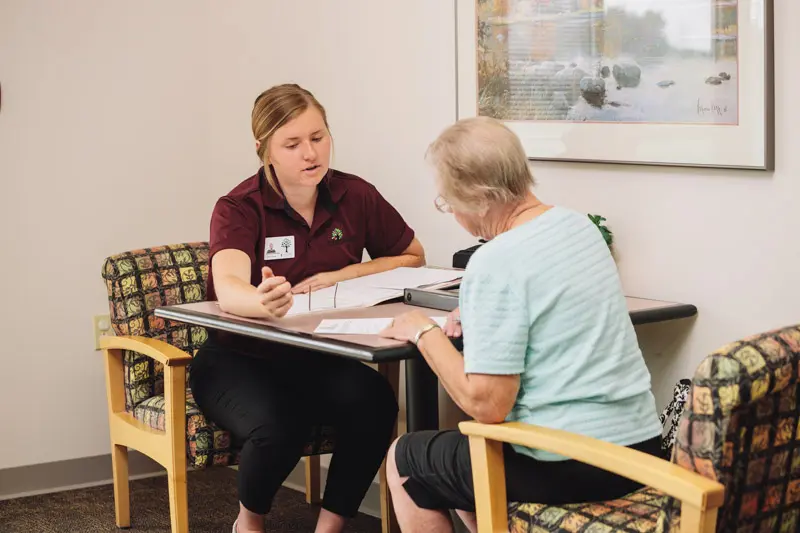-
-
- Financial Aid
- Financial Aid
- Scholarships
- Loans
- Grants
- Federal Work Study
- Additional Resources
-

“You’re at risk for disease.”
Those are words that many individuals hear in Grant County, the home of Taylor University. With a 37.3% obesity rate, Grant County residents are at an elevated risk of several preventable diseases. Of that 37%, 14.8% of those residents over the age of 20 years are diagnosed with type 2 diabetes.
With public health funding often limited in the United States and the current healthcare system not set up to utilize preventive medicine tools, managing disease prevention programs becomes challenging. However, Taylor’s community sees this challenge as an opportunity to serve.
Taylor University and Marion General Hospital are offering a new collaborative program that allows students to offer community members a solution to the need for disease prevention. Called InVitATION, which stands for INspire VITality And Tranformation In Our Neighborhoods, the program pairs trained Health Science students with Grant County residents at risk of preventable illnesses, like type 2 diabetes.
Erik Hayes, Professor of Kinesiology and the InVitATION program leader, explains: “I kept teaching students about how much movement, exercise, and good food can be used to treat and prevent chronic (illness) … and how our current health care system is not set up to utilize these tools.” He said his students “kept asking if there was something that could be done.”

In response to the passion that Taylor faculty, staff, and students shared, Hayes and co-leader Diane Dungan (Department Chair and Associate Professor of Psychology) developed the InVitATION program.
Local physicians can refer their patients to InVitATION and help them schedule their first session. Within the first month, 26 community members were referred to the program. They’ll be paired with one of the 20 trained students who intend to serve in the program during the 2018 fall semester. The patients and students will meet one-on-one to discuss nutritional, lifestyle, and other types of wellness education—first meeting for educational sessions at the doctor’s office, then moving to Taylor’s athletic facilities so exercise can be incorporated into the program.

Hayes describes the goal of this classroom filled with clients is for students to “fulfill a portion of the Gospel by leading people toward part of the abundant life that God has made for them by how they take care of themselves.”
Trained Taylor students educate community members about preventing the diseases that doctors identify that they are at risk of developing. Members can also elect to participate in personal training sessions through Taylor’s Fit Into Health program, where customized fitness routines help them get active.
Students preparing to work in the healthcare field often focus on memorizing facts and understanding scientific elements. However, Taylor professors have taken steps, such as the addition of the InVitATION program, to combine the traditional health science classroom education with hands-on client experience—allowing students to learn theory and practice their passions.
Martha McClurg, the faculty supervisor for InVitATION, explains, “We wanted to serve our local community while also allowing students to gain valuable patient-care experience.”
When these students enter the workforce, they are likely to spend their careers interacting with patients or clients. That’s why the InVitATION classroom is a medical office. Through this program, students begin serving others through healthcare before they’ve even earned their diplomas. McClurg describes this hands-on experience as “vital for helping them become good future practitioners.”
“I entered into the InVitATION program ready to help fix different problems,” says Madeleine Burkholder a senior biology major who served in the InVitATION program during the summer. “While that is the ultimate goal, I recognized that instead of coming in with a ‘fix it’ mindset, I had to come alongside people.”

Along with this lesson in humility and compassion, Burkholder says, “Clients are not always going to want to do exactly what is recommended, so how can I start to tailor the program to be something specifically for them? When I start to really listen and work the program into their lives, people become much more excited.”
As Burkholder and other students have discovered, InVitATION is designed to prepare students for a lifetime of service, not just for medical school or their first job after graduation. Our Health Science students’ future careers as health practitioners uniquely positions them to serve others by exhibiting both compassion and understanding. But to do that, they need to develop a variety of skills outside of the sciences, such as interpersonal communication.
Hayes believes “the undergraduate setting is the perfect place to teach those skills and shape the way future healthcare providers will practice medicine, particularly from a Christian worldview.”
That way, when our Taylor students jump into their careers and have to share news, like “You are at risk of type 2 diabetes,” they are equipped as servant-leaders to offer support, willing to come alongside others in their need—whatever and wherever that may be.
High school students who are interested in learning more about InVitATION and other Health Science programs can visit and schedule a meeting with a professor, or read more about how Taylor teaches the Health Sciences.